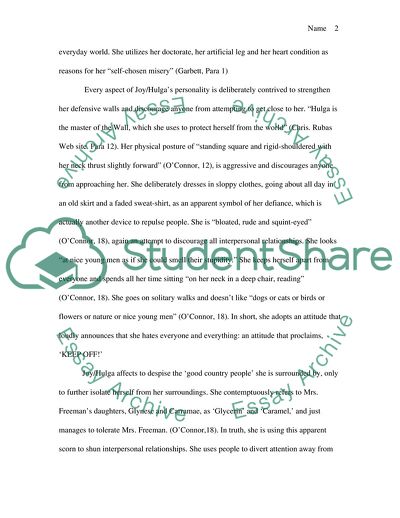Cite this document
(Analysis of Flannery OConnors Good Country People Essay, n.d.)
Analysis of Flannery OConnors Good Country People Essay. https://studentshare.org/literature/1707100-flannery-oconnor-good-country-peoeple
Analysis of Flannery OConnors Good Country People Essay. https://studentshare.org/literature/1707100-flannery-oconnor-good-country-peoeple
(Analysis of Flannery OConnors Good Country People Essay)
Analysis of Flannery OConnors Good Country People Essay. https://studentshare.org/literature/1707100-flannery-oconnor-good-country-peoeple.
Analysis of Flannery OConnors Good Country People Essay. https://studentshare.org/literature/1707100-flannery-oconnor-good-country-peoeple.
“Analysis of Flannery OConnors Good Country People Essay”. https://studentshare.org/literature/1707100-flannery-oconnor-good-country-peoeple.


